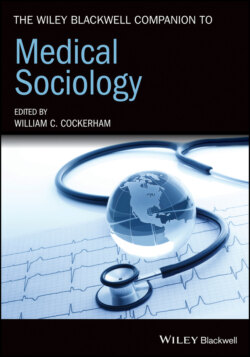Читать книгу The Wiley Blackwell Companion to Medical Sociology - Группа авторов - Страница 38
Fundamental Cause Theory
ОглавлениеThe most popular theoretical concept in American medical sociology today is Bruce Link’s and Jo Phelan’s (1995; Phelan and Link 2013) theory of fundamental causes. The theory maintains that in order for a social variable to qualify as a fundamental cause of sickness and mortality, it must meet four basic criteria: First, it must influence multiple disease outcomes. Consequently, the association is not limited to affecting only one or a few diseases but many. Socioeconomic status qualifies, for example, because SES is related to virtually all major causes of death from disease. Second, it must impact the onset and outcomes of diseases through multiple risk factors, not just one or two. So there have to be more than a few ways it can cause people to become sick, such as stress, smoking, unhealthy diets, poor housing, obesity, drug and alcohol abuse, lack of exercise, and insufficient preventive health care. Third, it involves access to resources that can be used to avoid risks or minimize the consequences of a disease if a person does become ill. And fourth, the connection with health is reproduced over time. That is, the effects persist despite changes in risks, protective factors, and diseases which led Link and Phelan (1995: 87) to call them “fundamental” in the first place. In order to test the theory, empirical validation of these four core features are required.
SES meets all four of these criteria because a person’s class position influences the risk and outcome of multiple diseases in multiple ways, higher SES persons have the resources to better avoid health problems or minimize them when they occur, and the association has endured indefinitely. The reason that SES is related to multiple disease outcomes through multiple pathways that change over time is that individuals and groups use their resources to avoid risks and adopt protective strategies. Consequently, the theory’s basic principle is that a superior assortment of flexible resources permits higher SES persons to avoid disease and death in varying conditions. More recently, Phelan and Link (2015) have identified racism as another fundamental cause.
